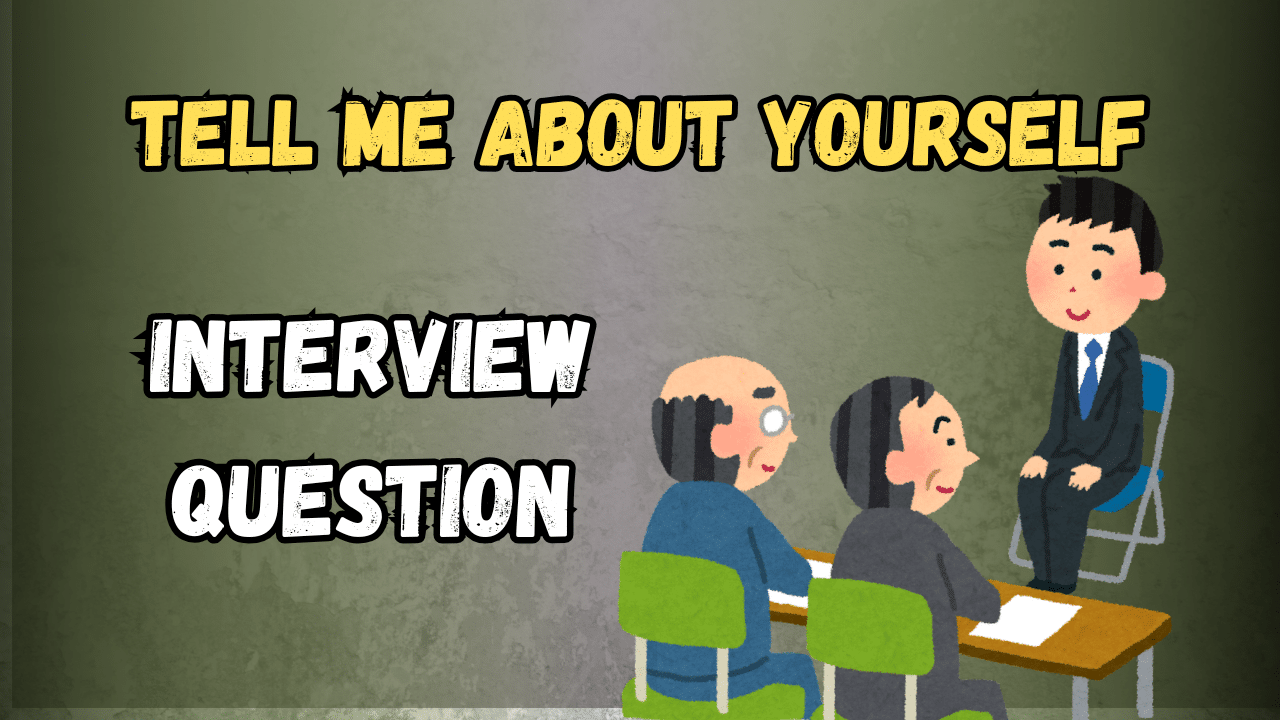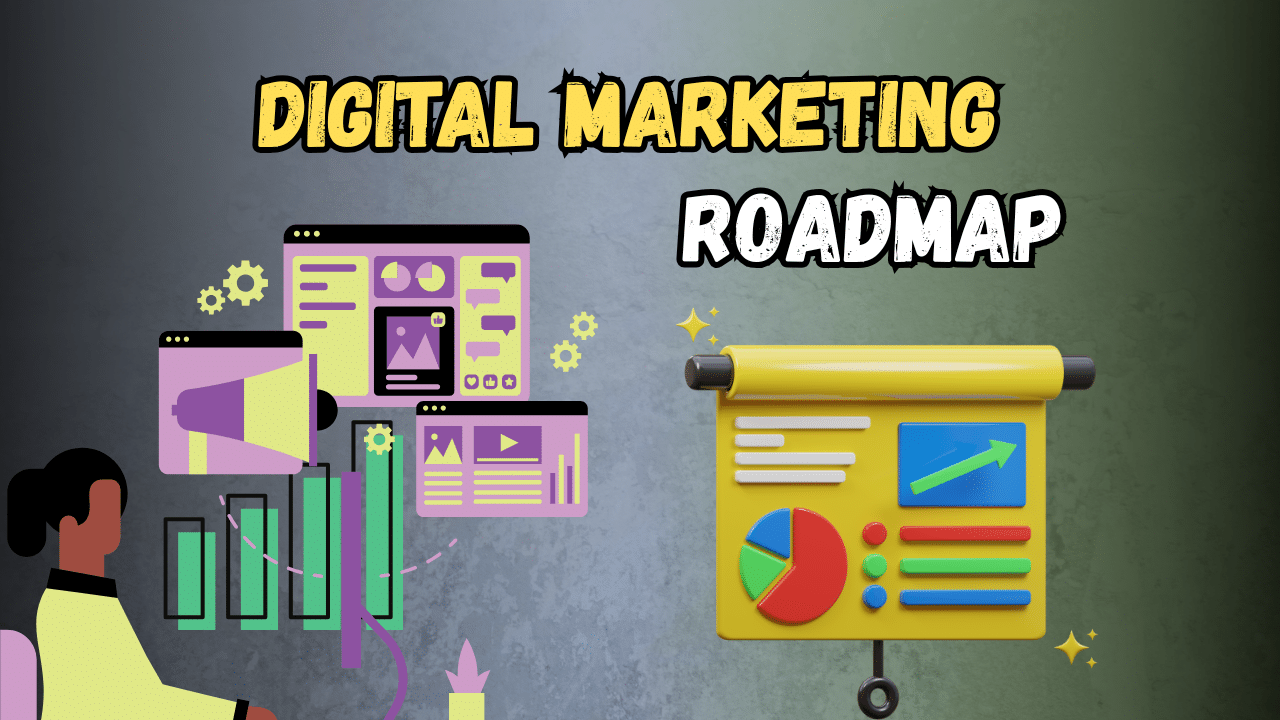Tell me about yourself interview question
Title: Mastering the “Tell Me About Yourself” Interview Question: A Step-by-Step Guide”

Section 1: Getting It About “Tell Me About Yourself”
The “tell me about yourself” question seems simple, but it is among the most crucial parts of any interview. It is often the initial question posed and establishes the tone for the rest of the discussion. Interviewers use it to gauge your communication skills, confidence, and your understanding of your work experience. A far cry from a call to recite your biography, it’s actually a chance to highlight your most relevant qualifications and illustrate how you can advance the company’s interests.
Why is this one so common? It’s a chance for employers to learn more than what’s in your resume. They want to know a little bit about your personality, professional goals, and how you respond to open-ended questions. A succinct, coherent answer can leave a lasting impression and provide you with a story that remains stuck in the interviewer’s mind. A poor or too-personal answer can sabotage an otherwise solid interview.
This is also one of those questions where interviewers are able to gauge whether you’re a good fit for the company in terms of professional and cultural fit. Are you ambitious? Do your past experiences naturally lead to the current job? Are you able to talk briefly and clearly? The most important thing is to know the purpose of this question, so let’s just analyze it.
In addition, this moment is one where you are able to subtly express your soft skills: confidence, clarity, emotional intelligence, and the ability to connect past events with future possibilities. Most candidates wing this answer. With some preparation and rehearsal, however, you can be certain that you make the most of this golden opportunity.
In short, “Tell me about yourself” is not just an icebreaker. It’s skillfully camouflaged as a chance to sell yourself as the perfect candidate. It will be easier for you to generate a concise, persuasive answer that encourages further discussion if you treat it as your elevator pitch.
Section 2: Designing the Perfect Answer: A Tested-and-Proven Framework
Strong groundwork is required for an effective “Tell me about yourself” answer. Without this, your response can waffle, lose its focus or fail to include your strengths. The most widely used structure is the Present-Past-Future model. This format ensures that your response is comprehensive and relevant.
- Present: Begin with a description of your responsibilities, recent achievement, and current job. Your current professional status is quickly established within this section.
- Past: Tell how your previous training and work experiences led you to where you are today. Emphasize your skills and accomplishments that are applicable to the position you are applying for.
- Future: Describe your current goals for current position and what you would like to achieve in your next position.
At example, you can say: “I am a data analyst working at XYZ Corp., analyzing sales data and delivering pragmatic recommendations for business performance improvement. In my previous role at ABC Ltd., I led a project that increased revenues by 15% through customer segmentation. I hold a Computer Science degree and have a good foundation in data visualization tools. I seek a role that allows me to leverage my analytical skills in a strategic, decision-making capacity.”
Here are some important tips on how to frame your reply:
- Tailor your response to the job ad. Highlight the skills and experience that match the employer’s needs.
- Make it concise but powerful. Focus on one to two minutes of speech.
- Avoid referring to personal facts unless they have direct bearings on the job or company culture.
- Practice aloud to ensure your tone is assertive and authentic.
With a systematic approach, you are ensured to be simple and portray your professional background in the most favorable manner. It gives you a framework to follow and helps reduce anxiety. The better prepared and organized you are, the more assured you will appear.
Section 3: Tailoring Your Answer According to Industry Standards
Your “Tell me about yourself” answer needs to be tailored to the industry for which you are interviewing, although the structure is the same. A candidate being interviewed for a technology position will have a different emphasis than a candidate being interviewed for an educational, marketing or financial position. Industry context determines what experience and skills are the most relevant.
For example, in the technology industry, your employer will likely value technical expertise, problem-solving, and knowledge of tools and programming languages. Your response should highlight relevant projects, coding skills or system improvements you have made. You might say:
“I’m currently a backend engineer at a fintech startup, where I’ve optimized API performance and contributed to scalable microservices architecture. With a Computer Science degree and strong experience in Java and Python, I enjoy building robust systems that solve everyday issues.”
If you are in marketing, emphasize creativity, data-driven results and campaign skills. Your response might be:
“As a digital marketing expert, I have managed multi-channel campaigns to grow leads by 30%. My strength lies in applying analytics, content marketing, and SEO to develop strategies in favor of corporate goals.”.
Emphasize your communication skills, subject-matter knowledge, and teaching enthusiasm in academic environments. For instance, “I’ve taught computer science as a professor for the last five years, covering data structures and algorithms. I love breaking down tough topics into easy-to-understand pieces, and my courses consistently receive high grades from students.”.
Emphasize analytical skills, risk management, and attention to detail for finance roles: “As a financial analyst, I’ve developed experience in budgeting, forecasting, and financial modeling for a mid-sized organization.” Profitability and cost-effectiveness have improved due to my recommendations.
Customizing your answer shows that you understand what the industry calls for and you are eager to provide. It shows that you have researched and your experience is customized specifically to suit the job.
Section 4: Common Mistakes and How to Avoid Them
Even though “Tell me about yourself” is a standard interview question, most applicants fall into typical traps that detract from their responses. By knowing these traps, you can avoid them and improve your answer.
- Getting too personal: Refrain from sharing irrelevant personal stuff like family background, hobby (if any), or childhood memories. Your professional history and how it relates to the job should remain central.
- Lack of framework: A meandering, unstructured response will puzzle the interviewer and give the impression that you are not prepared. Stick to the Present-Past-Future format to stay on track.
- Getting too vague: Sentences like “I did marketing” or “I have numbers skills” are too vague. Insert quantitative achievements instead: “I managed a $100k campaign with a 20% return.”
- TMI: Don’t include all of your past jobs. Emphasize the ones that are most relevant to the opportunity.
Quality is more important than quantity. - Use of phrases like “I’m just a fresher” or “I don’t have much experience” can weaken your confidence. Instead, emphasize your contribution to the table:
“As a recent graduate, I bring a fresh approach and newest training in contemporary development techniques.” - Not a good fit: You may appear to be a poor fit if your answer fails to show the skills and qualities needed for the role. Read the job description thoroughly, repeat the language and priorities.
- Sounding like a robot: Practice is essential, but be careful not to repeat the same answer repeatedly. Select a voice that will sound natural and real.
Steering clear of these errors will make the response memorable for good reasons. Keep in mind that your task is to establish a rapport, highlight your strengths, and guide the conversation towards your credentials.
Section 5: Practicing and Refining Your Answer
Practice is what will make you excel at the “Tell me about yourself” question. Even seasoned professionals can fall if they don’t practice. Practicing not only hones your content, but it also makes you confident and nerves decrease.
Begin by writing in Present-Past-Future format. Then rephrase it with clarity, conciseness, and impact in mind. Use bullet points or cue cards if necessary, but don’t over-script it.
Then, practice out loud. Hearing your response allows you to find awkward wording and areas for improvement. Practice in front of a mirror, audio or video recorder, or practice with a friend or advisor. Observe your body language, tone, and speed.
Mock interviews is another extremely helpful technique. Have a peer, career counselor, or mentor perform a mock interview. They can test if your response is crystal clear, confident, and on point.
Use the STAR method (Situation, Task, Action, Result) to validate every point with anecdotal evidence. This makes your response concrete and easy to remember. If you say that you are competent in leadership, cite an example where you led a group to accomplish a project successfully.
Finally, tailor your response across different contexts, including networking functions, job fairs, phone interviews and interviews in person. The message should remain the same, although the response can change slightly based on the situation.
You can achieve the perfect balance between practiced and authentic with practice. A well-written “Tell me about yourself” answer can set the tone of a successful interview and make a fantastic first impression that will last throughout the entire recruitment process.
Conclusion:
“Tells me about yourself” is more than just a generic interview question. It’s your opportunity to be in control and leave an impression as the ideal candidate for the position. Armed with its intention in mind, carefully crafting your response, adapting it to the field, being careful not to fall into common traps and rehearsing enough, you can give an answer that impresses employers and differentiates you.
For more interviews stuff: Click Here
your linkedin profile should act as a portfolio of yourself







